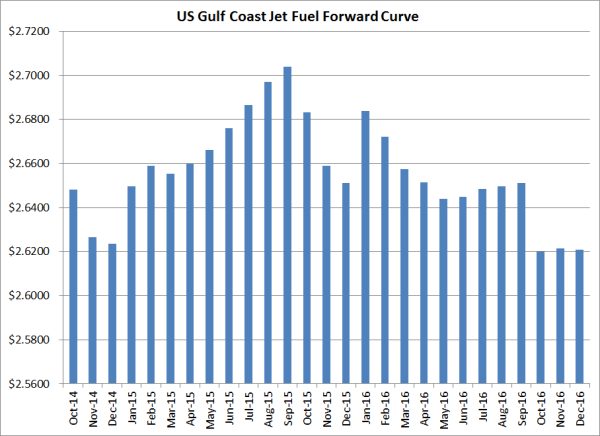2 min read
The Case For Employing A Dynamic Fuel Hedging Program
Historically, many large fuel consuming companies have utilized passive fuel hedging strategies but, companies who "hedge and forget it" often accept...
1 min read
Mercatus Energy : Apr 19,2012
If you follow our blog, you know we're energy hedging and risk management junkies. You're also familiar with our opinions on various energy hedging and risk management practices and strategies. Curious to determine the current state of fuel hedging and risk management practices (not just what they report in their financials or company presentations but the nuts and bolts) of numerous airlines across the globe, we surveyed them to get the answers direct from their executives.
Among the questions that we asked the airlines:
We've just compiled the results in a newly released report, titled “The State of Airline Fuel Hedging & Risk Management,” and we'll be telling you about some of the more interesting findings on our blog - now and down the road.
The study resulted several key findings about the current state of fuel hedging and risk management among commercial airlines, including the following:
Finding #1: Many airlines know they need to improve their fuel hedging initiatives but aren't taking the appropriate actions.
39% told us that they do not utilize hedging strategies which accurately reflect their risk tolerance and/or corporate goals. Another 22% said that they need to establish a more consistent approach to fuel hedging and risk management.
Finding #2: The majority of airlines rely solely on their banks for hedging advice, data and information.
68% reported that they rely solely on their banks to provide them with hedging and risk management advice, data and information, indicating that many airlines have yet to adopt energy hedging and risk management best practices.
We'll be the first to admit fuel hedging is far from a simple task but, based on what the airlines told us, many of them are well aware that they have a lot of work to do to ensure that their fuel hedging programs are successful and meet best practices, yet they aren't taking action.
That being said, we were very impressed by a several of the airlines, as they are doing nearly everything they should be doing to effectively manage their exposure to volatile fuel prices. Hopefully we will be able to say the same about many of their peers in the not too distant future.
That's all for now but the full report is available via this link: The State of Airline Fuel Hedging & Risk Management

2 min read
Historically, many large fuel consuming companies have utilized passive fuel hedging strategies but, companies who "hedge and forget it" often accept...

2 min read
In a previous post,An Alternative Oil Hedging Strategy Using Three Way Collars,we explored how oil and gas producers can implement a conservative...

3 min read
In recent weeks, there have been several articles written on the state of airline hedging in the US, Europe, Middle East and Asia. So, what is the...